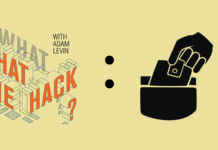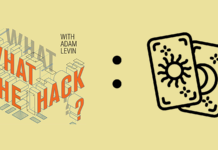

Opening my e-mail reminds me of walking through the bazaar of a third world open air market — the pickpockets are everywhere. In the last 30 days I have received spam purporting to be from the Better Business Bureau, the Internal Revenue Service, the United States post office, the FBI, and most recently (this morning) even one from the AICPA — the American Institute of Certified Public Accountants, a group of which I am not a member. The subject line was “Termination of your Accountant Status” and the body of the email explained to me that my status as a CPA was about to be terminated as a result of my participation in the filing of a fraudulent tax return. I was directed to take immediate action by clicking on the link called “complaint.” An eternal cynic and professionally paranoid, I did some research and determined that the logo of the AICPA was correct, as were the return addresses and phone numbers listed in the email.
While I am a credit guy, not a debits and credit guy (and having no degree in accounting), I didn’t take the threat seriously; similarly, since I hadn’t sent any packages through the post office, nor become a member of the Better Business Bureau, I wasn’t too concerned about the dire warnings I received from those folks, either. I guess these emails are about as credible as the ones from exiled Nigerian diplomats — remember those? But since I’m getting half a dozen of these a day, we all know that some of the people, some of the time, are being fooled and scams like this are working.
Hacking is a continuously evolving epidemic that is often perceived as a battle between evil and good forces. I am not overwhelmed by the proposals that I have seen because they treat the symptoms without paying attention to the infection itself.
Recently both the House and the Senate held cybersecurity hearings again (so many hearings, so much time, so few results — sigh). As one might imagine, the testimony was filled with justifiably dire warnings about the vulnerability of important elements of the U.S. infrastructure, particularly the power grid. Additionally, a fair amount of time was devoted to the hack of DigiNotar, which was owned by the U.S. public company Vasco Data Security, and was an important provider of security certificates for domains based in the Netherlands and beyond. Apparently, the hacker was able to issue about 500 phony certificates for major websites including Google, enabling that fraudster to impersonate a legitimate site and thereby intercept, for example, Gmail communications. The person who claimed responsibility for the attack had asserted namelessly that he was a 21-year-old Iranian student who had hacked several other security certificate issuers, and was cooperating with the Iranian government. Allegedly, the hack of DigiNotar occurred in June 2011; it was discovered in July, announced in August, and the company filed for bankruptcy in September. Such is the impact of being an unlucky target.
The hearings also mentioned the report from last December that hackers in China had breached the U.S. Chamber of Commerce’s castle walls, and gained access to information on its three million members, and pretty much everything else stored on its systems. The complex infiltration involving at least 300 different Internet addresses occurred and continued during a six-month period ending in May 2010, when it was finally shut down after the FBI got involved. Although it doesn’t seem to get a lot of attention, what happened to the Chamber of Commerce is just one skirmish of an apparently well-known war between Chinese hackers and American companies. We live in era where personal identifying information and intellectual property are the hottest commodities, and the ancient battle for superpower preeminence has transformed into digital ninjas’ attacks.
My point here is really very simple: Why can’t the 21-year-old Iranian student be cooperating with the Chinese hackers and sending e-mails masquerading as the AICPA to you and me? Talented young hackers are the equivalent of someone who finds a skeleton key for all the safe deposit boxes in a bank. All they have to do is figure out a way to get into the bank in the first place, and then they can loot the treasure of all the depositors, regardless of whether that depositor is an individual, or a business, or a power grid.
The cybersecurity hearings are necessary and informative, and have produced predictable results in that competing pieces of legislation to deal with the problem have already been introduced in both Houses. Equally predictable: Everyone is arguing about how our security systems can be protected, and what the appropriate role of the federal government is in creating those protections — or forcing them to be established by the private sector. Senator Joe Lieberman introduced legislation that would grant the Homeland Security Department regulatory authority over private sector entities with systems deemed critical to the nation’s infrastructural security. That proposal was immediately attacked by Senator John McCain, who, fearing that the Lieberman bill would turn the DHS into a counterproductive “super-regulator” said, “If the legislation before us today were enacted into law, unelected bureaucrats at the DHS could promulgate prescriptive regulations on American businesses, which own roughly 90 percent of critical cyber infrastructure…”
Private sector representatives seem to agree with McCain (shock). Internet Security Alliance President Larry Clinton said in written testimony: “Traditional approaches, including federal regulation, will not solve the problem as it will be largely reactive and not stay ahead of the changing nature of the threat. Worse, bad regulation could be counterproductive, leading companies to expend their limited resources on building in-house efforts to meet regulatory demands over actually dealing with the threat proactively. Fundamental to stopping the advanced cyber threat is to understand that our biggest problems are not technological, but economic.”
As far as I’m concerned, all of the proposals and comments share one fundamental flaw: They focus on the nature of the person or entity attacked, rather than on the nature of the attacker. Sooner or later someone has to understand that what we don’t want is the Department of Homeland Security chasing the same people as the FBI, the CIA, the Federal Trade Commission, and even the CFPB. And that is precisely what will happen until Washington understands that that same 21-year-old Iranian (if he actually exists) could be used to hack the power grid, or issue phony security certificates, or infiltrate a bank, or send e-mails to you and me pretending to be the AICPA. It’s like reading the work of John Dos Passos — you know that all the characters are related to one another, you just don’t know how.
Bad laws, whether well-intentioned or in a campaign to generate good press, are still bad laws.
However, there was one statement made on the Senate floor, by Joe Lieberman, with which I can heartily agree. In noting the urgent need for action of some kind, and welcoming other legislative proposals, he said that the danger was such that to him “it feels like September 10, 2001.”
This story originally appeared on Credit.com.









